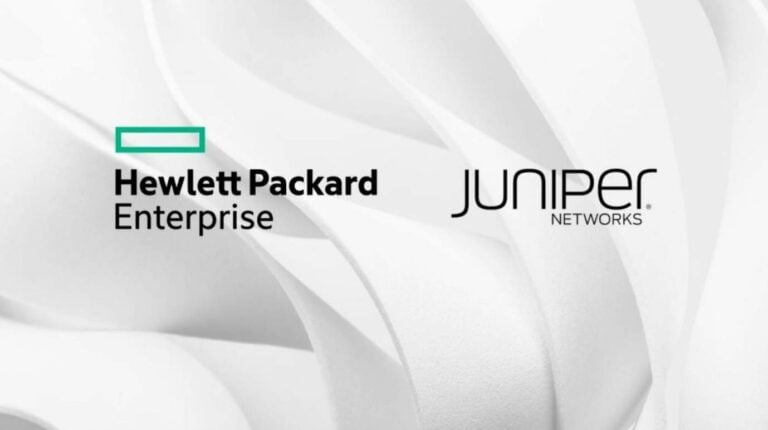In early 2024, news broke of the proposed acquisition of Juniper Networks by Hewlett Packard Enterprise (HPE). The US government threatened to throw a spanner in the works and filed a lawsuit. The Department of Justice argued that the acquisition would reduce competition in the market. However, less than two weeks before the start of the lawsuit, the parties have now reached a settlement. After some concessions on the part of HPE and Juniper, the US government has been reassured.
Last week, we attended HPE Discover 2025 in Las Vegas. We noticed that HPE CEO Antonio Neri talked about the acquisition very often and at length, as if it were already a done deal. This was even though the lawsuit had yet to begin. He must have known more than he was allowed to say at the time. Today it was announced that the parties in this case, the US Department of Justice on the one hand and HPE and Juniper on the other, have reached a settlement.
Competition between HPE and Juniper against Cisco
HPE and Juniper have made two concessions to reassure the US government. Unsurprisingly, both concessions relate to the companies’ Wi-Fi technology. This was the main sticking point for the government. The Department’s concern was that there would be too little competition if all these technologies ended up in the hands of the same company. In addition, it would generally impoverish the market. There would then only be one other major player besides Cisco.
The validity of the US government’s claims is debatable. You could argue that Cisco is such a dominant player in the market. Therefore, the merger of HPE Aruba Networking and Juniper will actually increase competition. Furthermore, the network market consists of so many more components than Wi-Fi. In those areas, HPE Aruba Networking and Juniper are highly complementary.
Instant On is being sold, access to Mist AIOps restricted
However, HPE had to give the US government something to reassure it. As part of the settlement, HPE will divest its Instant On business. In addition, the press release states that HPE will give limited access to Juniper’s AIOps technology after the acquisition is completed.
Instant On is a business unit through which HPE Aruba Networking also wants to provide smaller companies with access points, gateways, and switches. It is a bit strange that this has been accepted as a concession by the US government. This is true if the issue is really about maintaining competitiveness at the top of the market. With Instant On, HPE Aruba Networking is hardly competing with the likes of Cisco. It competes much more with other players that traditionally focus on the lower and middle segments of the market. Think of TP-Link, EnGenius, Ubiquiti, Zyxel, and the like.
Restricting access to Mist AIOps technology is undoubtedly a bigger concession on HPE’s part. However, last week we saw and heard that HPE Aruba Networking is not standing still on this issue either. Under the GreenLake Intelligence banner, AIOps, and in particular the agentic additions to it, is set to receive a boost. The fact that HPE is willing to make a concession on this point also indicates that the Mist component was apparently not the deal breaker. This seemed to be the case for some other voices in the market.
What does limited access to Mist AIOps mean?
The official wording around limited access to Mist technology is a bit vague. We reached out to HPE Aruba Networking about this, to get some more details. This is the response we received: “HPE has agreed to grant up to two licenses to the Mist AIOps source code, with the licensees determined through an auction process that will award a license to up to two bidders.”
So this means that Mist is thrown open to some extent. In theory, anyone can bid on it and get the source code. The settlement also states that up to 30 technical people and 25 sales people from Juniper can be transferred to the company bidding on and winning the license. After all, that company will have its work cut out after it gets access to the source code. Without help, that will be very difficult.
The auction for the license may yield up to two licensees. The settlement specifies a threshold amount of $8 million for that purpose. That is, if two bids come in at $8 million or higher, then both bidders get the license. If there are more than two, a second round of the auction will follow.
Finally, there is the (theoretical) possibility that Cisco will get access to the source code. If so, this settlement completely misses the mark. That would only make Cisco stronger. We do not expect this to happen, by the way, if only because it does not reflect well on Cisco. Nor is this a desirable outcome for HPE.
With the lawsuit off the table (if the court approves the settlement, of course), HPE and Juniper can now work. They can now focus on completing the acquisition process.
Also read: HPE acquires Juniper: surprising, but makes quite a bit of sense
